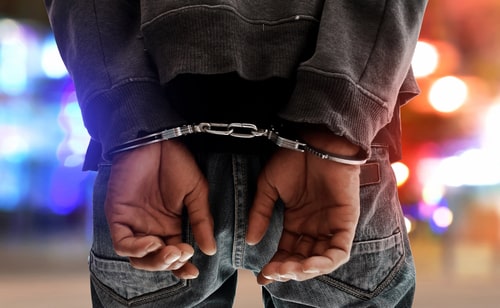Smartphones are everywhere, allowing any citizen the ability to record anything at any time. When police arrest someone or otherwise do their work in public, there’s a good chance someone close by will record it. But is it legal to record police? And if it is, can you still be arrested for recording law enforcement?
Knowing your rights can help protect you in the event you encounter problems. Ask the experienced Greenville, SC criminal defense lawyer of Boatright Legal.
Is Recording the Police Against the Law?
Law enforcement has often bristled at the prospect of being recorded while doing their jobs. However, it can be argued that recording the police benefits both the public and honest officers.
The public learns what the police are doing and can document instances of civil rights abuses and police excesses. Meanwhile, officers who faithfully and legally do their jobs can be cleared of suspected wrongdoing by a video recording.
Courts have repeatedly upheld the First Amendment right of citizens to record the police. As a general matter, anyone can record law enforcement doing their job in a public area.
In South Carolina, especially, this right is protected by virtue of the state having the one-party consent rule. This means that as long as one party consents to the recording (including the recorder) it is legal.
Important Qualifications
With that said, there are some important qualifications to this right. A Greenville, SC criminal defense attorney can explain more about these.
The activity being recorded usually must be in public. When police are doing their jobs among the public, it’s legal for citizens to record them. This can include law enforcement work that is done on a sidewalk, a public road, or a public area like a mall.
The person recording must not interfere with official police business. Recording crosses the line if the recorder gets in the way of police work. Doing this can risk destroying evidence or delaying the arrest of a dangerous suspect.
Maintain your distance from the police if you wish to record them. You should also not yell at police since this could interfere with their ability to communicate with suspects and others.
The person doing the recording must do so safely. A person who records police cannot present a threat to the safety of others. For instance, you cannot stop your car on a busy highway to record police. You must also not endanger yourself during the act of recording.
The recorder must not live-stream sensitive information. There’s a difference between recording video and live-streaming it, for instance on social media. The latter risks tipping off suspects when police are actively pursuing them. Police may have the right to stop you from doing this, depending on the circumstances.
Recording in private requires consent. While recording law enforcement in public is generally permitted, the same is not true for police work done in private.
As an example, a citizen could not walk into a private residence where police are working and record the officers. The citizen would have to obtain consent first, which is unlikely to be granted.
Can I Be Arrested If I Record Police?
Although you may be legally entitled to record law enforcement, that doesn’t mean you won’t be arrested. Police frequently arrest citizens even when they know their activity is constitutionally permitted. This is sometimes, but not necessarily, because the police are breaking the law and don’t want to be held accountable.
In other cases, an officer honestly might not know that the recording is legal. If you decide to record police, you must be prepared for the possibility of an arrest. However, a Greenville, SC criminal defense lawyer can defend your rights.
Seek Legal Counsel to Protect Your Rights!
If you are arrested or charged with a crime for recording police, it’s time to retain an experienced law firm. Just because you are arrested or charged, however, does not mean you broke the law. You could be facing false allegations of interfering with police business or endangering others while recording. Or, you may simply be the target of an officer who doesn’t know or respect your constitutional rights.
Have questions or legal problems involving a police recording? Call Boatright Legal now.






